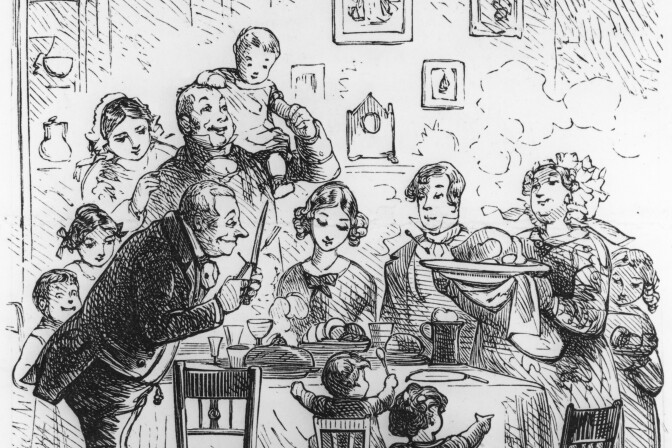When the Children’s Hospital Los Angeles’ Center for Transyouth Health and Development closed over the summer, it sent a shockwave through an overworked system. The families of nearly 3,000 CHLA gender-affirming care patients now face a new reality of roadblocks and longer wait times while seeking highly specialized and sensitive fields of medicine.
The move by hospital officials came amid federal funding threats that led many health care providers not to advertise their services openly — or close their doors entirely.
LGBTQ community leaders as well as current and former patients have spoken out against the changes. Here’s what we know on where things stand for some of those patients.
How patients are hurting
CHLA’s Center for Transyouth Health and Development was one of the premier clinics for trans health care in the country before it closed July 22.
“ L.A. County only has a limited number of gender care providers,” said Maria Do, the Los Angeles LGBT Center’s community mobilization manager. “So this means that [patients] are turning to already overburdened community clinics or private providers, and these wait lists are long.”
Other local medical providers, like Kaiser, also have started to limit gender-affirming surgical procedures for patients under 19 — which are only recommended by professionals in rare cases under current medical guidance. Kaiser still continues to offer puberty blockers and hormone prescriptions for trans youth.
Kathie Moehlig became familiar with CHLA’s trans health care center as she was taking her own child to the hospital from San Diego. The experience led her to found the nonprofit TransFamily Support Services, which has connected with families traveling long distances — even internationally — to get treated at the clinic.
Moehlig said she’s spoken to many people, including patient families and staff at the clinic, who are upset with how hospital leadership handled the closure.
“ None of this was done in correlation with the providers, the people who are seeing these patients on a regular basis,” Moehlig said. “So the providers also had the rug pulled out from under them.”
She said providers were left to scramble to find and refer their patients to other clinics that could keep refilling prescriptions and running tests.
“It was devastating, to say the least, to our families,” Moehlig added.
Families who’ve spoken out at rallies echoed these concerns, saying that though doctors filled out prescriptions and gave referrals, patients are dealing with longer wait times and are hurt by the hospital leadership’s decision to close.
“ When they lose a provider like the ones at CHLA, it also means losing their trust and safety and stability,” Do said. “Many folks feel abandoned.”
What’s CHLA saying?
CHLA said that federal funding threats and cuts to Medicaid risked putting them in a temporary shutoff — a situation they could not risk.
President Donald Trump's administration has mostly targeted children’s hospitals up to this point. But other health care systems in Southern California also have moved to restrict care following CHLA’s clinic closure.
“ We are all afraid of the domino effect of other clinics following suit from that,” Moehlig said. “That threat is there.”
Moehlig told LAist the list of providers she works with that offer gender-affirming care for youth changes on a monthly or even weekly basis.
Providers nationwide, such as CHLA, also are facing possible subpoenas.
In July, the Department of Justice made a rare move to announce that it was publicly looking into clinics offering gender-affirming care. According to court filings, at least one of those requests includes handing over social security numbers, billing information for hormones and other sensitive patient records.
Shannon Minter, legal director for the National Center for LGBTQ Rights, called these subpoenas an intimidation tactic. He said they’ve caused some providers around the country to step away from offering or advertising gender-affirming care for youth.
“ Believe me, when you get a subpoena from the federal government indicating that you're being investigated for potential civil or criminal prosecution, it is terrifying,” Minter said.
A full list of subpoenas issued has not been made public. It’s not clear whether CHLA or any other local health care providers have received such subpoenas.
CHLA did not respond to LAist’s inquiry about whether the hospital had been subpoenaed.
What families can do
For families, especially ones with kids who have recently come out as transgender or gender-diverse, navigating the health care system for trans youth at this moment could be scary.
Moehlig, of TransFamily Support Services, said the best way for parents to get connected with resources for their children is to join support networks with other families, such as her own nonprofit.
Support groups can help people of all ages — Moehlig said the youngest person in their support groups is 3 years old and the oldest is 88.
“ It can be very challenging as a parent of a trans person because it's sometimes hard to find anybody else within our circle that has a similar experience,” Moehlig said. “So that's why we provide this support across the whole of the family, to break through that isolation.”
What’s next
There are several active lawsuits that could determine if the federal government can continue to restrict health care for trans youth even in states that allow it.
The Supreme Court indicated earlier this year that individual states should determine whether they allow gender-affirming care for youth, though it’s not clear how they would rule on questions of federal funding for hospitals that offer such services.
Meanwhile, state lawmakers also are moving to protect medical records related to gender-affirming care.
SB 497, a bill authored by state Sen. Scott Wiener, passed the legislature this month. It would establish California as a “transgender state of refuge” and protect trans youth’s medical records from outside subpoenas.
That bill is currently on Gov. Gavin Newsom’s desk awaiting a signature.
Advocates like Do also are worried that the restrictions on health care for trans kids will be followed by even more rollbacks for transgender rights nationally.
“This is just the beginning,” Do said. “This is the canary in the coal mine. If they're coming for the lowest-hanging fruit, what's next?”
Moehlig, for her part, said she’s looking forward to the day when the Trump administration leaves office and the federal government stops attempting to restrict health care for trans youth.
“ We will move to a place where we're going to be able to go further,” she said, noting that the federal government came a long way from how it handled the early part of the AIDS crisis.
Moehlig pointed to how the federal government swung toward progress by funding care and research to “where we actually could see the elimination of HIV.”
She said that sense of history is what helps her stay optimistic that one day, gender-affirming care for trans youth will be much easier to access.
“We know that there's going to be progress,” Moehlig said. “It's just, what costs are we paying in the time that it takes us to get to that?”












